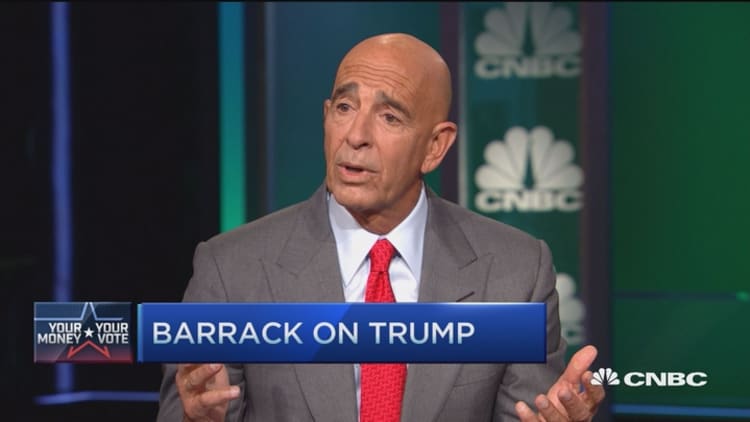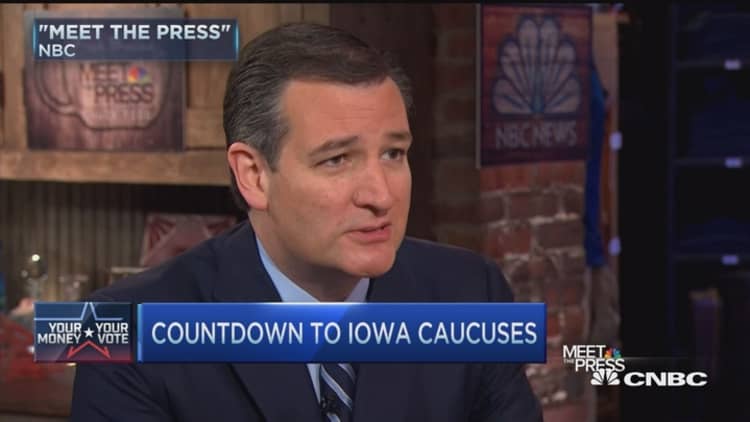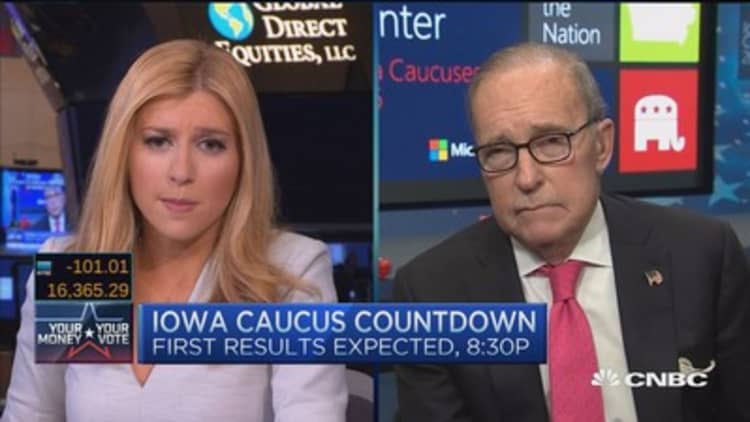


Donald Trump's audacious presidential bid is starting to look more like a campaign as voting starts. But the billionaire's methods remain far from conventional.
The businessman lent $10.8 million of his own fortune to his campaign in the fourth quarter as it began funneling more money into advertising and ground operations, according to data filed with the Federal Election Commission on Sunday. But the campaign continued to burn less cash than key opponents on the Republican and Democratic sides.
Trump's lean campaign could become more crucial as a string of voting kicks off, starting with the Iowa caucuses on Monday night. The tycoon, the front-runner in most state and national Republican polls, has also shown a willingness to spend that could keep him in the race for the long haul.
"This campaign has largely been driven by the media coverage that he's receiving. He certainly is willing to spend money, but even then has spent less than his principal opponents," said Anthony Corrado, a professor of government at Colby College, who studies campaign finance.
Since launching his long shot campaign last summer, the often abrasive Trump has repeatedly touted his ability to run an efficient campaign without taking big contributions from donors. In one Facebook post last year, the mogul said paying for his campaign shows he is "not controlled by donors, special interests and lobbyists" but working for the broader public.
Voting starts with the Iowa caucuses on Monday night, followed by primaries in New Hampshire on Feb. 9 and in South Carolina on Feb. 20. Trump sits near the top of recent polls in all of those states, but experts have shown skepticism about whether poll support will translate into voter turnout.
Trump has inspired fervor among possible Republican voters and small donors. The campaign took in nearly $3 million from sources other than Trump in the fourth quarter. But enforcing the notion of a self-funded campaign has become a "central" tenant of Trump's populist appeal, said Darrell West, vice president and director of governance studies at the Brookings Institution.
"In an age of massive public cynicism, that's a great way to appeal to the public. It distinguishes him from all of the other politicians who are raising money. It's a way for him to position himself as a white knight," West said.
Trump's campaign reported $6.7 million in operating expenditures in the fourth quarter, with much of it going to travel, event space, advertising and merchandise like the "Make America Great Again" hats. He continued to dominate national polls even as he raised and spent much less than his opponents.
Sen. Ted Cruz of Texas, Trump's top competitor in Iowa, had $15.5 million in operating costs in the fourth quarter. Sen. Marco Rubio of Florida, the current favorite for the Republicans' "establishment" wing, posted $14.7 million in spending.
The Democratic contenders shelled out even more. Former Secretary of State Hillary Clinton reported $32.6 million in operating expenditures, while Sen. Bernie Sanders of Vermont had nearly $32 million.
Those candidates' operations all raised more than Trump to finish up the year, either through their campaign committees, affiliated political action committees or both.
"There is really nothing like the Trump campaign in American history. He's only received 12 donations in the past quarter for the maximum amount of money. That's unheard of," said Sheila Krumholz, executive director of the Center for Responsive Politics.
Trump has built out organizational infrastructure, though much less than would be expected at the start of primary voting, West said. But he added that, if success in the early states makes the prospect of a Trump nomination more likely, the billionaire will not only have to raise more money but also spend more to compete nationally.
— CNBC's Eamon Javers contributed to this report.




